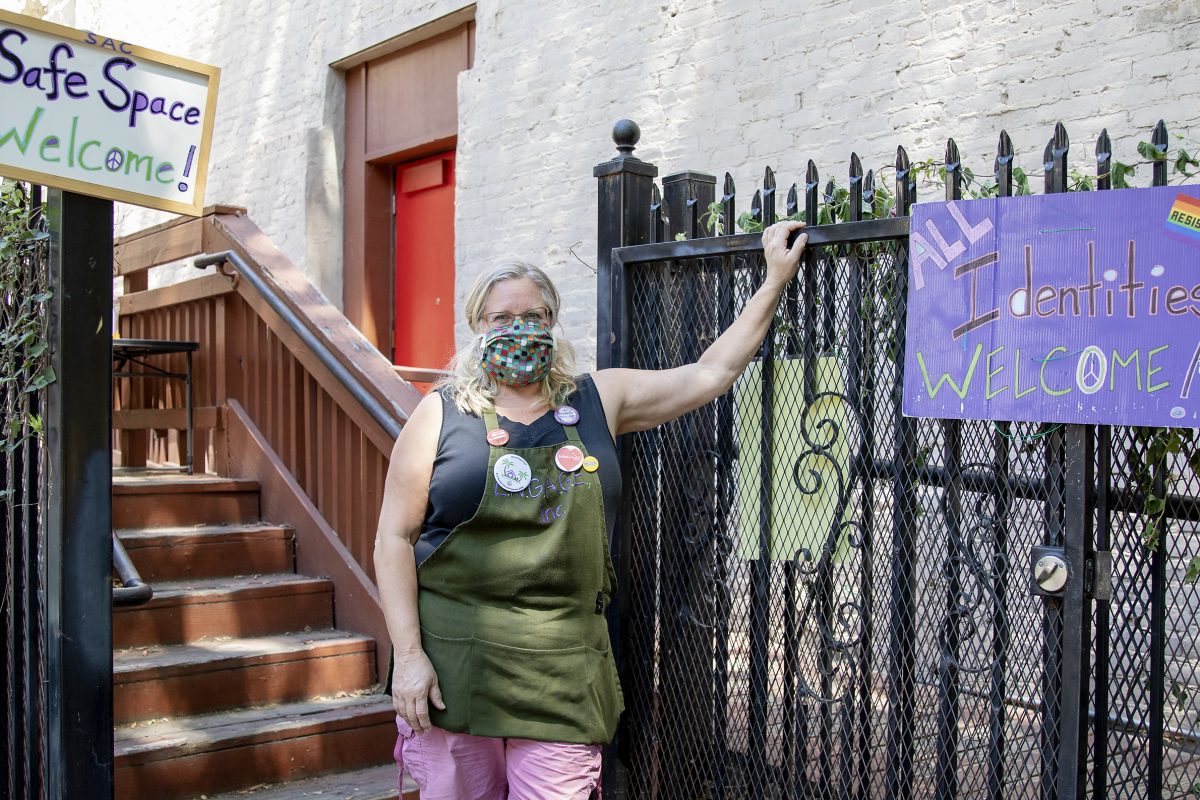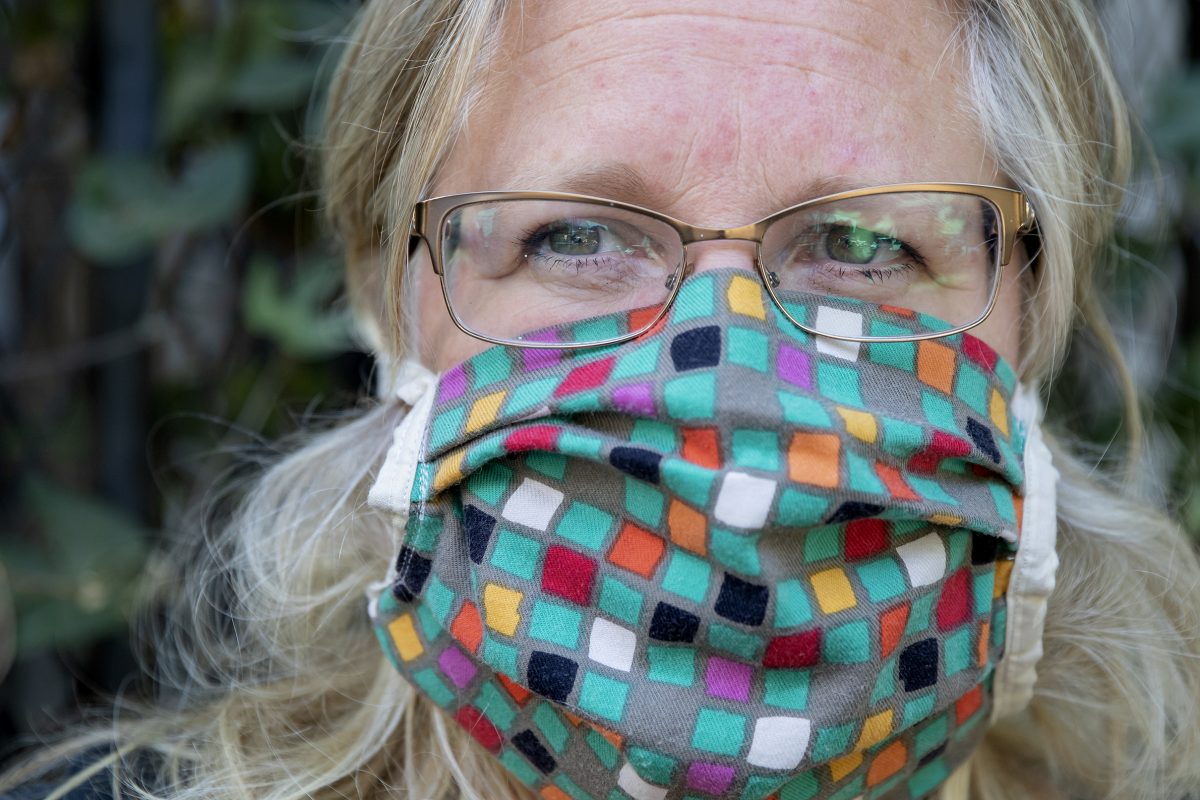Kim Church is a professor of communication at City College, where she teaches her students about rhetorician Kenneth Burke’s view on humans as symbol-using and symbol-misusing beings. When she’s not teaching at City College, Church advocates for shelter for people living outdoors through her Sacramento nonprofit E.N.G.A.G.E. INC. (Engaging Neighbors to Generate Action via Grassroots Efforts). She says that wearing masks can be viewed as a symbol in the age of COVID-19, but that the symbolism of masks is complicated.
Kim Church on interpreting the symbolism of the mask in the coronavirus pandemic:
I think in history, when we look back, the mask will be a prevalent symbol of this moment in time. But symbols aren’t used the same way by everybody. Even if we use the same alphabet, we might speak different languages. Just because somebody uses a mask or doesn’t use a mask doesn’t necessarily mean that it has the same symbolic value as other people who are also using masks or not using masks. Since I work with the very impoverished, I’m assuming the mask doesn’t have the same symbolism to unhoused folks as it does to folks who, say, have a house. It’s complicated by access.
On her work at nonprofit E.N.G.A.G.E. INC:
I started a nonprofit, an NGO actually, because it’s a non-governmental organization. It’s called E.N.G.A.G.E. We’re a 100% volunteer, 100% privately funded grassroots effort here in Sacramento. In the last four or five years we’ve concentrated our efforts on our unhoused neighbors, and our neighbors experiencing homelessness, and our neighbors experiencing shelter-lessness. It’s kind of an after work project, so to speak. So it’s what I do when I—well ,it’s what I used to do when I came home from City College, now [that] I don’t get to be at City College. Our target population is transitional-aged youth, which are 18- to 24-year-olds that were basically aged out of the foster care system who are far over-represented on the streets.

Through [E.N.G.A.G.E.] I’ve met other advocates for folks living outdoors and also met people who live outdoors. When this first started, before people were even wearing masks, I reached out to people to ask if they could find masks for the folks that I work with living outdoors, and blessed be that several people, including perfect strangers, stitched masks and got them to me, and I was able to give every person I work with a mask. The rub, though, is that without education, the masks don’t mean much.
On education and access in relation to masks and coronavirus:
Case in point—there’s a youth shelter here in town that I delivered both food and masks to because they were not being provided either of those. I went back a couple days later to provide more food to them and found out that nobody was wearing the masks. Then I found out that the staff wasn’t wearing masks, and that was a little shocking to me because I don’t understand why the staff of a shelter wouldn’t be wearing masks, No. 1. No. 2, if they’re not wearing masks, why would the youth wear masks, because they are not seeing anyone else wear masks, and so that’s my rub about the symbol. Like yeah, sure, for housed people, masks represent protection. For unhoused people, people are wondering why the hell people are wearing masks. I met somebody yesterday in the grocery store who was unhoused and who didn’t even know there was a pandemic going on. I understand speaking on symbols, but at the end of the day we need more masks on more human beings.
On cultural impacts to responding to coronavirus:
Even among educated people I’ve seen a lot of willful ignorance about it. I think a lot of it stems from our obsession with rugged individualism and as a culture always wanting to protect ourselves first, and, of course, what we know now about the masks is that we wear them for other people.That goes against the dominant narrative that, “We need to pull ourselves up by our bootstraps”’ I think it’s only been literally within the last week or so that people have actually understood that we’re wearing masks for other people; we’re not wearing them for us. And that if everybody wears masks, we will help everybody else, but a lot of people aren’t in that mindset. So they don’t wear masks apparently because they don’t want to help other people; they don’t want to protect other people. To me, symbolically, that seems very problematic.
Ben Irwin interviewed Kim Church on May 4, 2020.

























